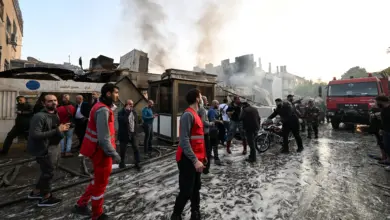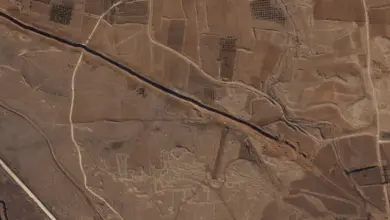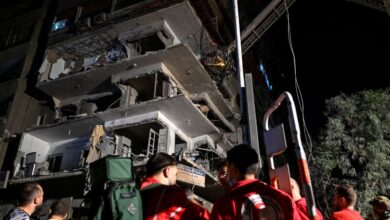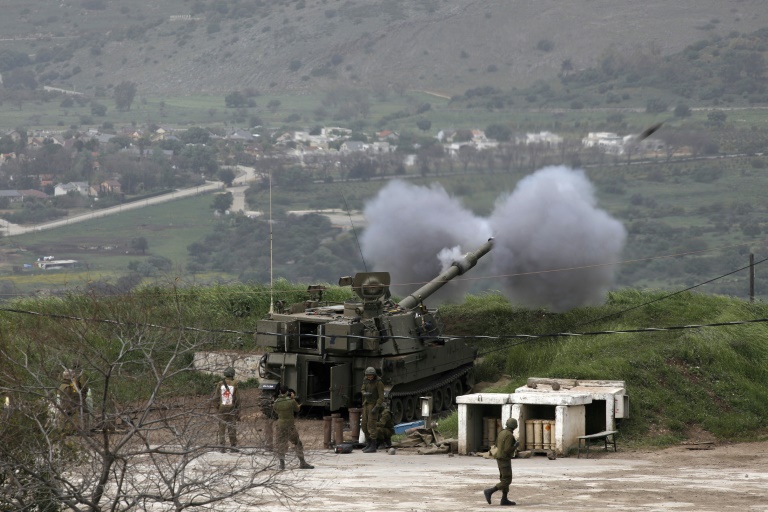
BEIRUT — US and Russian officials have given their commitment to a political solution for the deepening Syrian conflict, a United Nations envoy said Sunday, but Moscow dismissed speculation it was preparing for President Bashar al-Assad's exit.
With rebels now fighting on the doorsteps of Damascus, Assad's forces kept up their now daily artillery strikes and air raids on eastern suburbs as well as some rebel-held districts on the capital's outskirts.
UN special envoy Lakhdar Brahimi met the US and Russian deputy foreign ministers in Geneva for the second session of tripartite talks in less than a week, apparently in response to rising violence that now threatens to engulf Damascus.
"All three parties reaffirmed their common assessment that the situation in Syria was bad and getting worse," a statement from Brahimi said. "They stressed that a political process to end the crisis in Syria was necessary and still possible."
Notwithstanding his comments, commitment to a political process could be at risk. Western officials were among those who helped rebels to create a unified chain of command at the weekend, and Washington is expected to recognize the opposition as the sole representative of the Syrian people next week.
Russia, Syria's main arms supplier, insisted its position on Assad had not softened and it was not negotiating on the future of the president, whose family has ruled Syria for 42 years.
"We are not holding any talks on the fate of Assad," Foreign Minister Sergei Lavrov was quoted as saying by Itar-Tass news agency in Moscow. "All attempts to present the situation rather differently are shady."
Several countries are believed to be supplying both sides in the conflict, with Iran bankrolling Assad's war efforts while its regional rivals Saudi Arabia and Qatar arm the rebels.
Brahimi said the talks aimed to find a solution based on last June's Geneva Declaration, which called for a transitional government. This proposal originally foundered over different interpretations of that transition; Washington said Assad could not play a role but Russia insisted that his fate should not be decided outside Syria.
Syria's 20-month-old uprising, which began as peaceful protests but has descended into civil war, has become increasingly bloody, with more than 40,000 people killed.
Radicals on the rise
The rebels have gained momentum in recent weeks, capturing a series of military sites across the country often with the help of radical Islamists. However, some activists believe the opposition is still far from toppling Assad, whose army has largely held together and who has many heavy weapons.
The Syrian Observatory for Human Rights reported army shelling and clashes across the country Sunday, with 60 counted dead before evening. Death tolls have averaged at about 100 per day in recent weeks.
In the north, the radical Islamist group Jabhat al-Nusra, linked to Al-Qaeda in Iraq, led other rebels in seizing on Sunday a regimental command center in Aleppo province, which borders Turkey.
The British-based Observatory, which has a network of activists across the country, said the center's commander fled along with 140 soldiers. Five soldiers were captured.
Western powers have become increasingly alarmed by the role of groups such as Jabhat al-Nusra, which Washington is considering putting on its terrorist list.
Radical groups have gained increasing popularity and influence despite their small numbers. The seasoned fighters they attract from Syria and abroad have increased the effectiveness of their attacks.
Some rebels and residents feel the militants are more disciplined than other rebels, drawing fewer charges of looting and kidnapping.
Road to Damascus?
Damascus has become a focal point of battles over the past week, as rebels effectively shut the international airport by clashing with Assad's forces near there. Foreign flights have been suspended and residents say the airport road is closed.
Rebels, who have called their campaign "Operation Opening the Road to Damascus," uploaded video Sunday that showed heavy gun battles and explosions rocking several rural towns around the capital. The video also showed rebels firing a fully functioning tank which they had captured from the army.
But there is no clear winner yet in a battle where neither side seems to have advanced. The Syrian army has claimed many successes around the capital, airing footage on state television of soldiers raiding parts of the rebel stronghold of Deraya.
"Our noble forces in Deraya have destroyed some of the terrorist dens used by Al-Qaeda terrorists to store weapons and other criminal tools," said a report on Syria TV, which usually refers to rebels as terrorists. "Many terrorists were killed."
Still, rebel gains have helped drive a surge of diplomatic efforts among Gulf Arab states and the West to support the opposition and its newly formed umbrella group, the Syrian National Coalition.
The move may be encouraging defections. Nine judges defected in a YouTube video published Sunday. Such videos, however, are difficult to verify as the Syrian government has restricted media access in the country.




